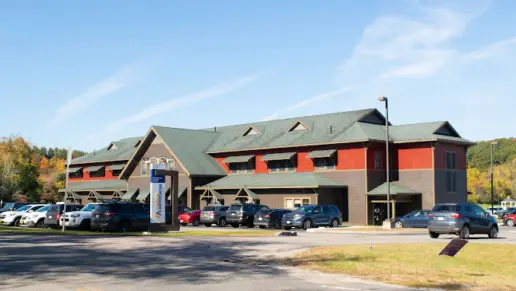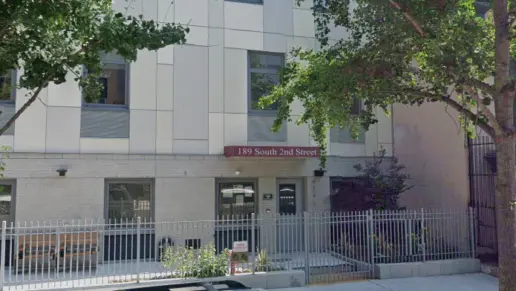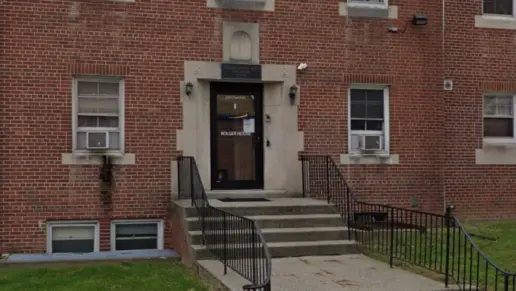About Beacon Center
The Niagra Falls Outpatient facility is part of the Beacon Center. The facility is located in Niagra Falls, New York. Their outpatient facility provides treatment for individuals who may have a substance use disorder, mental health disorder or a dual diagnosis. They are able to direct you to one of their other locations for their opioid treatment program if needed. The care they offer is said to be affordable.
The medication assisted treatment is overseen by a clinic physician which I do like. I like that it is overseen by a clinic physician because they can make sure the appropriate medication is used and they ensure your safety while maintaining the appropriate level of care for you. Another thing I like about their medication assisted treatment is that it is paired with counseling. Through the counseling sessions they will help you make behavioral changes while the medication helps you stay stable and avoid relapse. The medication they may provide for an opioid use disorder is either Buprenorphine or Vivitrol. They use Naltrexone for individuals with an alcohol use disorder.
Their intensive outpatient program does allow you to maintain a work and school balance. You would be required to attend individual and group therapy sessions for a total of 9 hours per week. I like that they offer a compass program. This program is for those who have a dual diagnosis. It helps people receive simultaneous treatment for both a substance use disorder and a mental health disorder.
They also provide outpatient substance use disorder counseling. The counselor will conduct a thorough evaluation to determine the best treatment. They also will go over your psychological history. By doing so they are able to go over your alcohol and drug use, medical and mental history, family history and relationships. Once all of that is gone over, they will determine and develop a personalized course of treatment. I like that they help keep you accountable by random drug testing. The drug testing may be by a urine toxicology screen, blood alcohol testing or hair follicle testing.
Latest Reviews
Rehab Score
Gallery
Location
Other Forms of Payment
Medicaid is a state based program that helps lower-income individuals and families pay for healthcare. Medicaid covers addiction treatment so those enrolled can use their coverage to pay for rehab. When a program accepts Medicaid the client often pays very little or nothing out of their own pocket.
Self-pay involves paying for treatment out of your own pocket. You can use savings or credit, get a personal loan, or receive help from family and friends to fund your treatment. If you don't have insurance or your insurance plan doesn't cover a specific program, self-pay can help ensure you still get the care you need.
Financial aid can take many forms. Centers may have grants or scholarships available to clients who meet eligibility requirements. Programs that receive SAMHSA grants may have financial aid available for those who need treatment as well. Grants and scholarships can help you pai for treatment without having to repay.
Sliding scale payments are based on a client's income and family size. The goal is to make treatment affordable to everyone. By taking these factors into account, addiction recovery care providers help ensure that your treatment does not become a financial burden to you or your family, eliminating one barrier to care.
Private insurance refers to any kind of healthcare coverage that isn't from the state or federal government. This includes individual and family plans offered by an employer or purchased from the Insurance Marketplace. Every plan will have different requirements and out of pocket costs so be sure to get the full details before you start treatment.
Addiction Treatments
Levels of Care
Treatments
The goal of treatment for alcoholism is abstinence. Those with poor social support, poor motivation, or psychiatric disorders tend to relapse within a few years of treatment. For these people, success is measured by longer periods of abstinence, reduced use of alcohol, better health, and improved social functioning. Recovery and Maintenance are usually based on 12 step programs and AA meetings.
When you choose drug rehab in New York, you'll participate in a variety of treatments that are designed to help you live a drug-free lifestyle. Common methods of treatment include group, individual, and family counseling, medication management, nutrition, exercise, and management of co-occurring mental health disorders.
Opioid rehabs specialize in supporting those recovering from opioid addiction. They treat those suffering from addiction to illegal opioids like heroin, as well as prescription drugs like oxycodone. These centers typically combine both physical as well as mental and emotional support to help stop addiction. Physical support often includes medical detox and subsequent medical support (including medication), and mental support includes in-depth therapy to address the underlying causes of addiction.
Substance rehabs focus on helping individuals recover from substance abuse, including alcohol and drug addiction (both illegal and prescription drugs). They often include the opportunity to engage in both individual as well as group therapy.
Programs


Clinical Services
Research clearly demonstrates that recovery is far more successful and sustainable when loved ones like family members participate in rehab and substance abuse treatment. Genetic factors may be at play when it comes to drug and alcohol addiction, as well as mental health issues. Family dynamics often play a critical role in addiction triggers, and if properly educated, family members can be a strong source of support when it comes to rehabilitation.
Group therapy is any therapeutic work that happens in a group (not one-on-one). There are a number of different group therapy modalities, including support groups, experiential therapy, psycho-education, and more. Group therapy involves treatment as well as processing interaction between group members.
In individual therapy, a patient meets one-on-one with a trained psychologist or counselor. Therapy is a pivotal part of effective substance abuse treatment, as it often covers root causes of addiction, including challenges faced by the patient in their social, family, and work/school life.
Trauma therapy addresses traumatic incidents from a client's past that are likely affecting their present-day experience. Trauma is often one of the primary triggers and potential causes of addiction, and can stem from child sexual abuse, domestic violence, having a parent with a mental illness, losing one or both parents at a young age, teenage or adult sexual assault, or any number of other factors. The purpose of trauma therapy is to allow a patient to process trauma and move through and past it, with the help of trained and compassionate mental health professionals.
Contact Information
417 Third Street
Niagara Falls, NY 14301


